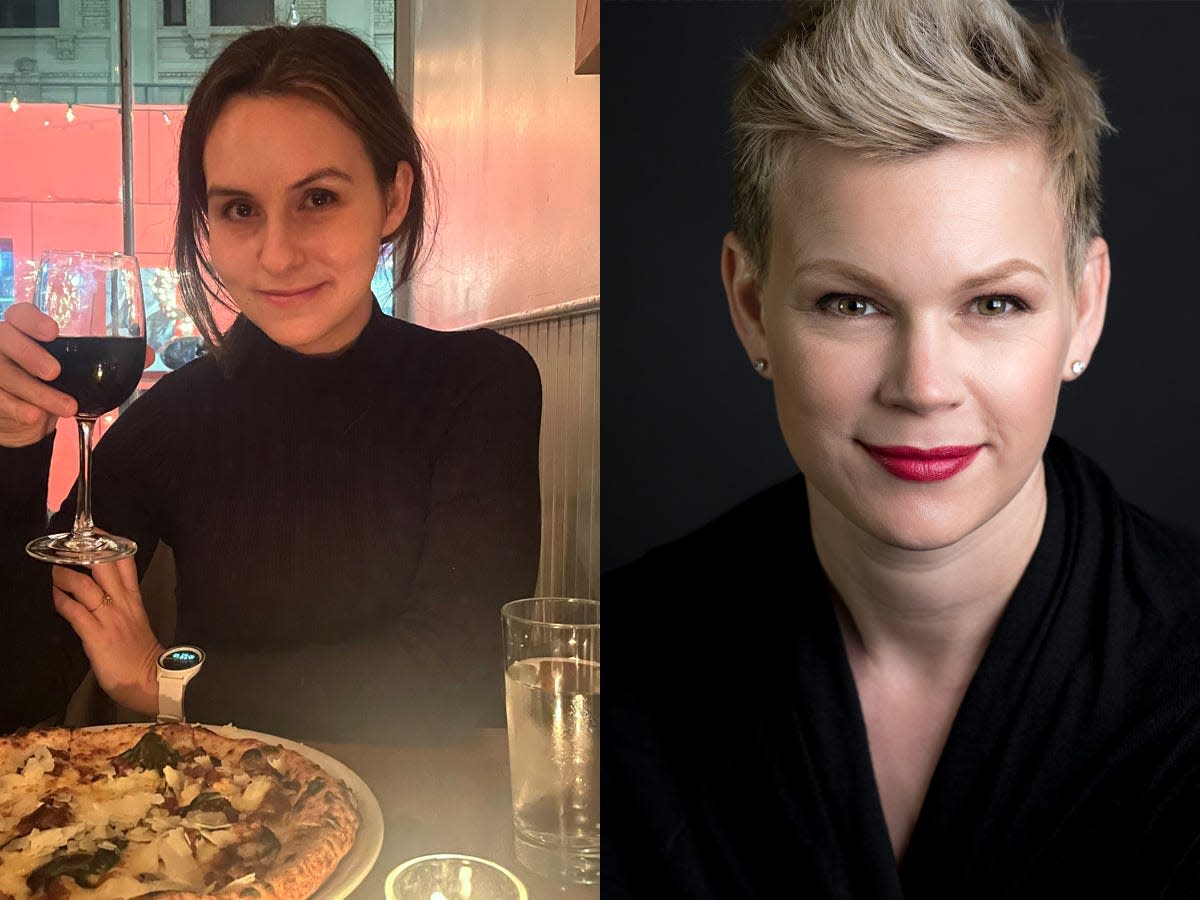I find it impossible to save money. A financial therapist helped me see the 3 reasons I can't stop spending.

Like many people, I saved a lot during the pandemic.
I've also been blowing through my savings since.
A financial therapy session helped me find the root of my money habits.
Like other millennials, my wealth blossomed during the pandemic. Receiving stimulus checks, collecting unemployment after losing my part-time job, and (most importantly) not going out added more to my savings than I ever thought feasible a year before.
But, like many Americans now, I've been blowing through my savings. I've been in a hot-and-cold relationship with my high-yield savings account, adding $50 only to take out $200 more to pay off one of my credit cards.
It was time to bring in a professional. I booked a session with Amanda Clayman, a financial therapist who hosts Fresh Produce Media's Audible series "Emotional Investment." I'd interviewed Clayman in the past and tried to follow some of her advice, but still felt stuck on learning exactly how to budget.
Our appointment resembled a typical therapy session: I filled out an intake form beforehand, answering questions about my earliest experiences with money. Then, we spoke for an hour about my concerns, with Clayman focusing less on specific budgeting hacks and more on how money ties into my identity — something I never thought about before.
The session made me realize where most of my money is going, and what I can do to curb the spending.
My people-pleasing habits literally cost me
I'm great at avoiding impulse purchases for myself.
Where spending blurs for me is doing anything socially. I say yes to meals with multiple appetizers and $20 cocktails, spa days, Airbnbs with all the fixings. I always put my card down, wincing through my Aperol Spritz straw.
Until this session, I chalked it up to the reality of living in New York City. But Clayman clocked a detail on my intake form: I want to save for a family, and I'm already bracing myself for how drastically my social life will change once I have to prioritize a child. Will I feel a lot lonelier when I can't join my friends for dinner?
It revealed an even deeper truth: I agree to everything because I don't want to disappoint anyone. True to my people-pleasing ways, I even cave to every 25% tip request, no matter how absurd it feels.
Clayman, who faced a similar scenario when she was living in NYC in her 20s, said this is a great opportunity to "express some boundaries and even ask your friends to help you to be accountable to this goal."
"We can think of this as kind of a preparation and rehearsal phase," she said about my life before children. "You can start to run these simulations of what life might be like and give yourself some scaffolding."
I'm overwhelmed by budget spreadsheets
After interviewing Clayman for a story on budgeting, I was inspired to start a budgeting spreadsheet. I asked my more fiscally responsible fiancé for advice on what he does, so we sat down and he walked me through a budgeting template he uses.
I still haven't touched mine.
Having my finances split between my bank account, two credit card accounts, and back-and-forth Venmo payments made tallying up a month's worth of expenses deeply convoluted. I also downloaded a budgeting app, but found that confusing, too.
I know this isn't the only area of my life where I struggle to stay organized: I have ADHD and use an AI program to help me with household tasks. Clayman said she's had many clients, particularly younger women, whose recent ADHD diagnoses helped them connect "some of the challenges that they've experienced when it comes to not just paying attention to money, but how to organize money as a whole."
She suggested focusing on one area rather than doing a big overhaul all at once. I could start by tracking only what I spend on social outings before diving into everything else.
Loud budgeting still feels taboo
Going through my earliest memories around money, I realized that talking about saving wasn't something I grew up with. My parents followed the typical immigrant story of coming to America with no money, but they didn't talk much about saving when I was a kid. They did it quietly and wanted for me to focus on school and my career.
Socially, I rarely have friends say something is too pricey for them. We might briefly talk about salaries or money issues, but it still feels foreign to practice "loud budgeting," or openly reject plans for the sake of saving.
Clayman said this is common. "It is a change in identity, in the way you have found your place in your relationships by being agreeable and easy in this particular way," she said. But, she added, it can also be a great opportunity for both parties to grow.
"When you communicate a new intention and ask for support, it's also creating a permission structure for that other person to change," Clayman said.
It reminded me of a small step I took recently, where I joked with my friends that I always spend too much on days over 73 degrees and asked if we could go for a walk as our hangout. All three laughed and related, and we came over to a friend's apartment that day, spending $0.
It's made me think of other low-budget alternatives, such as hosting dinners at my place. That version of me might be more frazzled than the one sipping a chilled martini in a speakeasy. But it's I suspect she'll be a little more real — and possibly more fun.
Read the original article on Business Insider

 Yahoo News
Yahoo News 
